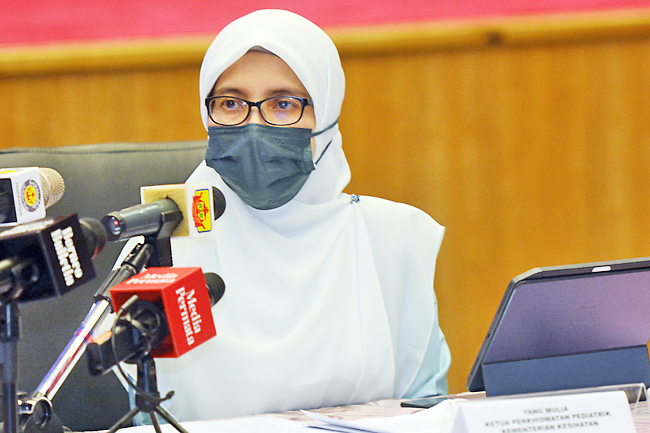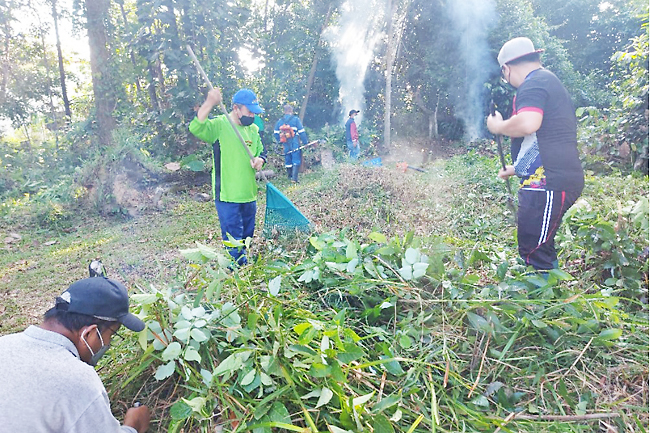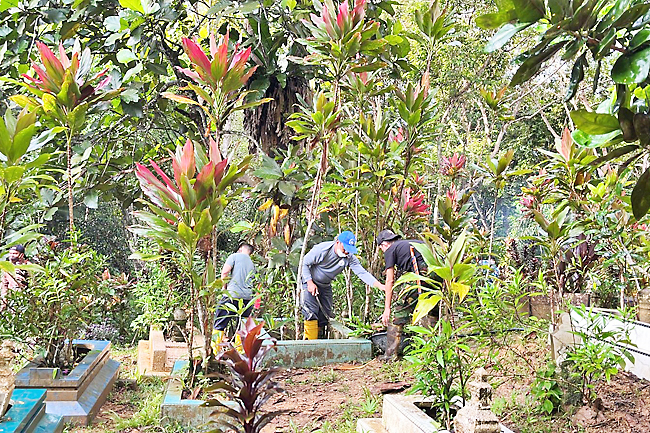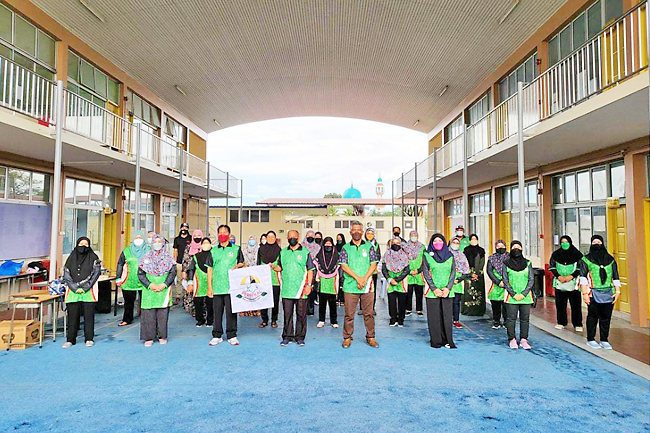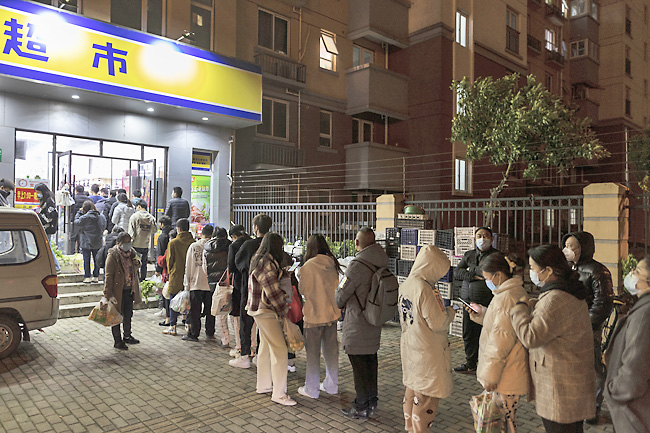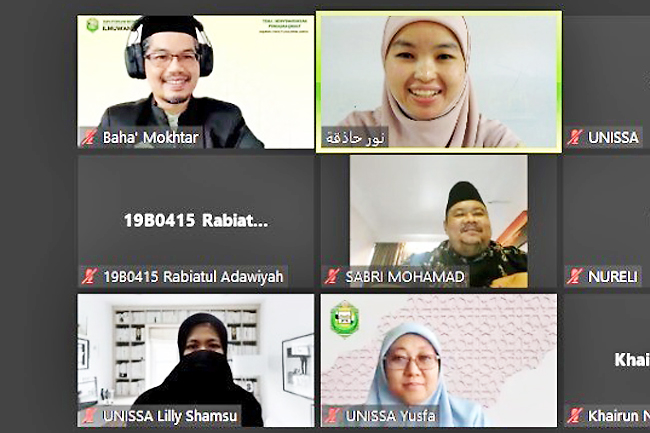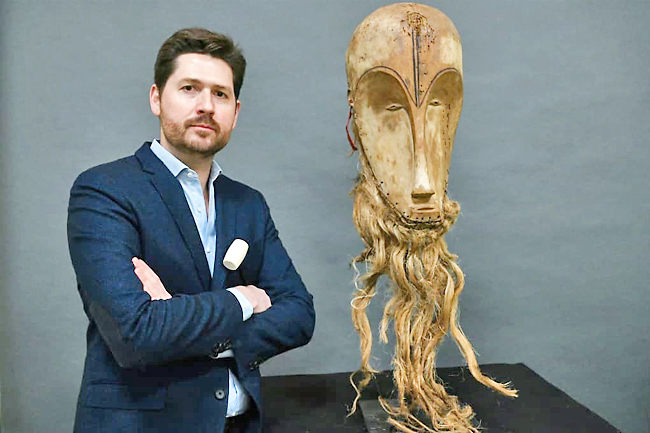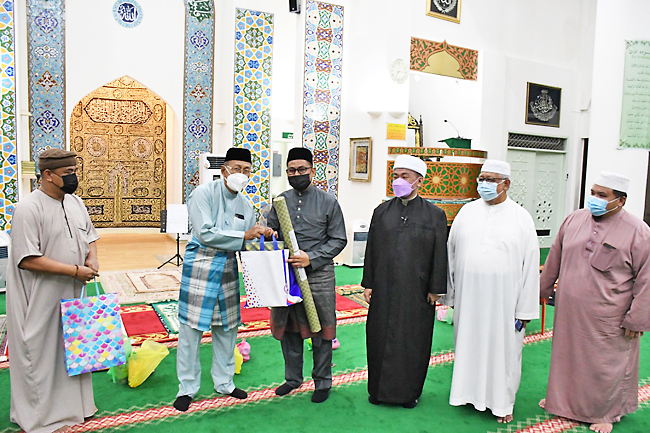James Kon
About 25 per cent of the total number of COVID-19 cases in Brunei Darussalam were individuals under 18 years, while 12 per cent were children under 12.
Several children infected with the coronavirus reported having mild symptoms, although at least four cases of multisystem inflammatory syndrome in children (MIS-C) have been reported. Two previous deaths among children who have been linked to COVID-19 were unvaccinated and had other health problems.
During a special press conference yesterday, Minister of Health Dato Seri Setia Dr Haji Mohd Isham bin Haji Jaafar said it is important to vaccinate children aged five to 11 to reduce risks of severe effects from the COVID-19 infection.
“Alhamdulillah, the third wave of COVID-19 in Brunei Darussalam has shown a declining trend, not only in the number of cases detected daily but also in the number of cases admitted to hospital and the number of cases in Categories 4 and 5 requiring intensive care,” he said.
He revealed that 99.9 per cent of cases were found to have experienced mild signs of infection or no signs of infection at all.
“With a very high vaccination rate of over 94 per cent of the total populace receiving at least two doses, this is not something unexpected. It is in line with the findings of scientific studies and similar to other countries with high vaccination rates,” the minister said.
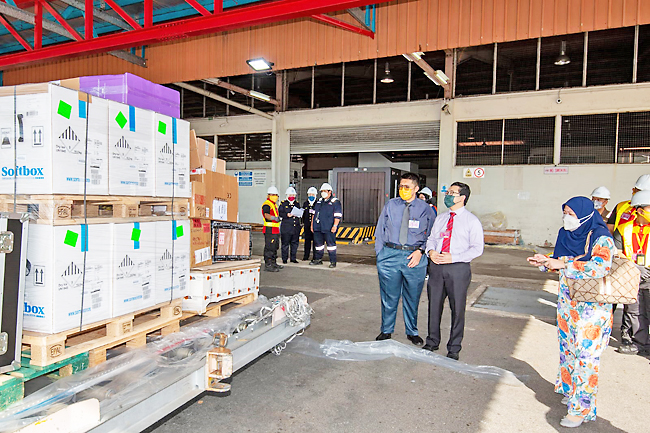
According to the World Health Organization (WHO) and other studies, children can be infected at the same rate as adults, with WHO statistics showing that children and adolescents who get the virus will typically experience fewer and milder signs of infection than adults.
Since the onset of COVID-19 outbreak in December 2019 to October 2021, statistics show that the mortality rate among children infected with COVID-19 is 0.03 per cent for children and adolescents aged below 14 and 0.04 per cent for children and adolescents aged below 24. Children and adolescents can also experience signs of infection or symptoms for a long period of time, or known as “long COVID” or “post COVID”.
Dato Seri Setia Dr Haji Mohd Isham said, “A syndrome known in Europe as “paediatric inflammatory multisystem syndrome temporarily associated with SARS-CoV-2 (PIMS-TS), also known as ‘multisystem inflammatory syndrome in children’ (MIS-C) in the United States has been reported worldwide. This syndrome can pose complications to recovery from COVID-19 for children. This serious syndrome can cause inflammation to the heart, lungs, blood vessels, kidneys, digestive system, brain, skin or eyes of a child.”
Inflammation of the heart muscle (myocarditis) can occur in anyone at any age. However, the minister shared that it is “37 times more likely to occur in children infected with COVID-19 compared to children not infected with COVID-19”.
“MIS-C can also cause myocarditis in children. According to a study conducted by the Center for Disease Control and Prevention, United States (US CDC), the risk of getting myocarditis is typically 146 cases per 100,000 people. However, this risk will decrease to two to five cases per 100,000 people who receive the COVID-19 vaccine.”
According to the WHO, Dato Seri Setia Dr Haji Mohd Isham said, “Despite the low risk of adverse effects from the COVID-19 infection, children and adolescents are significantly affected by COVID-19 control measures including school closures, travel control and control of sports and leisure activities. Among the effects on adolescents include mental health issues, disruption of education, increased emotional distress and other health problems
including obesity.”
He added that preliminary findings from an international study conducted by UNICEF and Gallup involving children and adults in 21 countries show that one in five people admitted to feeling depressed and loss of interest in activities since the start of the pandemic. The findings were published in The State of the World’s Children 2021.
The WHO has recommended countries to provide COVID-19 vaccination to children aged five to 11. The Global Advisory Committee on Vaccine Safety (GACVS) has concluded that for all ages (including children), the benefits derived from the COVID-19 mRNA vaccine in reducing the need for hospital treatment and death from COVID-19 far outweigh the risks of the vaccine.
On the side effects of vaccine on children, he said, “Studies conducted in several countries specifically on the serious side effects of the COVID-19 vaccination on children aged five to 11 did not find any serious side effects or deaths directly linked to the vaccination.”
“Moreover,” he shared, “No cases of myocarditis after the COVID-19 vaccination for children under 12 years have been reported to date worldwide.”
Dato Seri Setia Dr Haji Mohd Isham ensured the safety of the vaccine for children, saying, “In reviewing WHO’s recommendation to provide COVID-19 vaccination to children, the ministry through the COVID-19 Vaccine Technical Committee has conducted several detailed studies including reviewing scientific studies that have been conducted around the world, specifically for children in the age group; discussions with experts from WHO, medical and health experts from neighbouring countries and medical experts from vaccine manufacturing companies; and examining and evaluating the information that has been shared by countries that have implemented the administration of COVID-19 vaccine to children in the age group.”
Findings of Phase 2 and 3 clinical studies for children in the age group found that Pfizer Comirnaty COVID-19 Vaccine for children has a 90.9-per-cent effectiveness, well-tolerated and showed a strong neutralisation antibody response.
“The data examined did not show any serious effects on children as a result of COVID-19 vaccination, and this vaccine has been given emergency use authorisation (EUA) for children between five to 11 from the US Food and Drug Authority (FDA) on October 29, 2021 and from the European Medicines Agency (EMA) on November 26, 2021,” the minister said.

